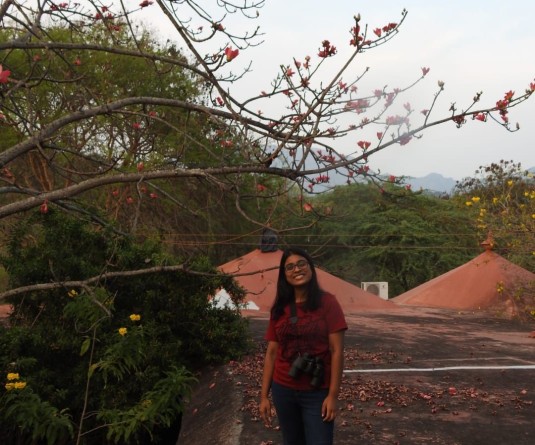
Pankaj Sinha
Dimapur
Education increases the curiosity to learn. When I was young and studying, the teachers experimented to use short stories in the referenced lessons to attract the mind. Our teacher also used to narrate a short story as soon as he came to the class. The stories in the referenced lessons gave such joy that all the students like us to learn everything on their own mind. Now we don't get to hear stories in the teaching-learning process even in our dreams. My attitude is that of a teacher. It is not only of the present, but of the past. But in the role of a teacher, I am aware of the practicality of the currently developed teaching process on the basis of the past. I have done research while teaching in the classrooms of many schools and in the training of teachers. The result is that whether it is today's children or students, they do not even want listen the stories. The teachers consider the use of stories in the teaching-learning process unnecessary. Modern teachers have considered the main goal of their teaching-learning process to be merely stuffing the knowledge of the lesson into the minds of the students in the classroom and getting them excellent marks in the examination. In the so-called modern education revolution era, this mental art of the teachers is appropriate, but cannot be considered completely appropriate.
I believe that how is it possible to develop curiosity or the desire to learn in the absence of stories in the teaching process? The responsibility of the universal development of the natural human being is based on the mechanism of the education system and the chant of the teacher's teaching-learning process.
The goal of all-round development for the students is set in the National Education Policy. From the point of view of education, the idea of a complete human being is necessary in the process of all-round development. Human being is a living form made up of body, mind, life, intellect and soul. The role of parents is very important in the creation of a human being blessed by the divine power. The family is also defined by the role of the parents. And then each family fulfills its responsibility in the formation of society. The language, dress, food habits, lifestyle and faith in God of the family keep developing from generation to generation through stories. The teacher's teaching-learning process based on stories is what inspires the family members to learn and to also inspire learn the development of family and society-appropriate nature and behavior. This teaching - learning process leads to positive development of the body, mind, soul, intellect and soul of a human being. Education starts from the family and is nurtured by the society. An educational institute is required to acquire infinite knowledge. That is, there is a deep connection between families, society and the educational institute. Therefore, the inclusion of stories in the teaching-learning process of the teacher in the educational institutes defines the psychological teaching - learning process itself; because stories strengthen the traditional beliefs towards the family, society and the country.
Stories are the mirror of the family and society. Today, is it possible to develop the desired daily reality nature in the family and society due to the indifference towards stories in the teaching-learning process? In Bharat, family is the most important factor in the process of society formation. Today’s the education system is denying the importance of family and society, which is moving ahead on the path of information-centric infinite knowledge. The artificiality of the family environment in educational institutions is increasing the distance between the student, teacher and parent. Therefore, the development of indifference towards stories in the teaching-learning process is natural.
Whether it is the traditional prevalent education system or the time of the modern digital education system; whether it is language, science, mathematics or any subject in teaching, the new knowledge based on the text presented through the contexts of the traditional short stories of grandmothers can be imbibed in the students in both traditional and digital teaching-learning process. With this, along with infinite knowledge in family and social percepts language, dress, food habits, lifestyle and one's own faith in God can be passed on from generation to generation in the family and society. As the teacher tries to develop the art of incorporating stories and motivated incidents in his teaching-learning process, the interest in the presented lesson increases and learning starts developing automatically. In order to enable students to acquire infinite knowledge, it is necessary to make the teaching-learning process highly learning-oriented. For this, there should be a yearning for knowledge in the students, interest in the lesson and a feeling of curiosity in their heart and mind every moment. There is a strong possibility of positive success if the teacher keeps using traditional short stories in the teaching-learning process. It is a request for all types of teachers and professors.




